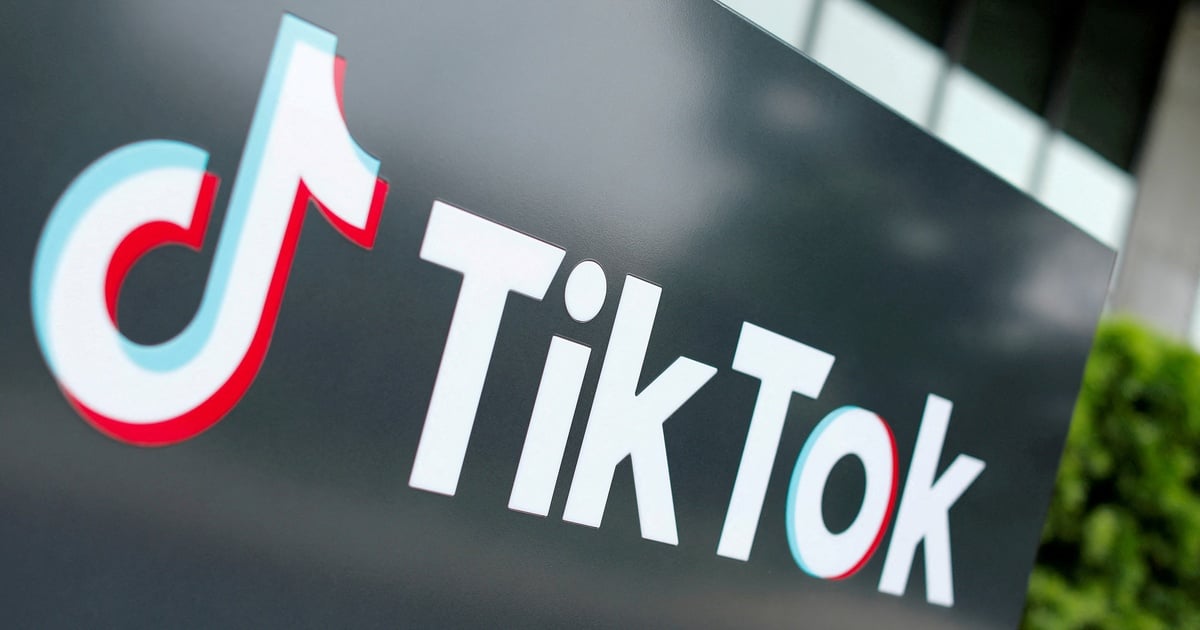Sign up for The Brief, The Texas Tribune’s daily newsletter that keeps readers up to speed on the most essential Texas news.
Texas Attorney General Ken Paxton on Thursday sued TikTok for the second time in recent months, accusing the social media company of violating deceptive trade law by downplaying its addictiveness and exposing children to explicit material.
The suit argues that TikTok, a short-form video app, violated the Texas Deceptive Trade Practices Act by listing itself on app stores as appropriate for children and not enforcing its community guidelines effectively. The Apple App Store lists TikTok as rated for those 12 and older, while the Microsoft and Google Play Stores list the app as appropriate for users who are 13 and older.
The 66-page filing, which has several redactions, details several TikTok posts containing inappropriate material that seemingly violate the guidelines and ways the app can circumvent parental controls on smartphones through an in-app browser. At one point, the lawsuit states the inappropriate material also included child sexual abuse content, although that section of the suit is largely redacted.
“TikTok actively worked to deceive parents and lure children onto their app despite the presence of an overwhelming amount of profane and illicit material,” Paxton said in a statement Thursday. “Companies may not jeopardize the health and wellbeing of Texas children by blatantly lying about the products they provide.”
A spokesperson for TikTok did not immediately respond to a request for comment.
Several times the suit references an investigation conducted by the state that found videos which contained depictions of drug use, self-harm and sexually explicit acts. In December, Paxton’s office announced it would investigate several social media platforms’ privacy and safety practices for children, however the office did not clarify in its announcement Thursday whether the investigation mentioned in the lawsuit was related.
But depending on a ruling from the U.S. Supreme Court, TikTok may not be accessible to anyone in the country for much longer. The platform has stated it would pull all activity from the U.S. on Jan. 19 if the Supreme Court does not strike down a bipartisan law mandating its parent company, ByteDance, sell TikTok.
The Supreme Court is set to hear arguments Friday on the law, which makes it illegal for providers like Apple to have applications available that are owned by foreign adversaries. ByteDance is based in China, and the law was primarily aimed at forcing the TikTok sale. ByteDance is also named in the lawsuit Paxton filed Thursday.
This is the second lawsuit Paxton has filed against TikTok in just over three months, as the attorney general’s office filed a suit accusing the company of violating the new Securing Children Online through Parental Empowerment Act. The SCOPE Act, which has received its own legal challenges, forbids companies from selling a minor’s personal information without parental approval, and the October lawsuit claims TikTok circumvented the law several times. The new lawsuit was filed in the same Galveston federal district as the first suit, and dozens of other lawsuits against social media platforms have been filed across the country in recent years.
Texas lawmakers have weighed bringing restrictions or outright bans on social media platforms like TikTok for minors as some are exposed to harmful content, but free speech advocacy organizations and tech companies have balked. Several bills have been filed ahead of the 2025 Texas legislative session, one of which could potentially restrict minors from creating accounts on the sites altogether.
Disclosure: Apple, Google and Microsoft have been financial supporters of The Texas Tribune, a nonprofit, nonpartisan news organization that is funded in part by donations from members, foundations and corporate sponsors. Financial supporters play no role in the Tribune’s journalism. Find a complete list of them here.

